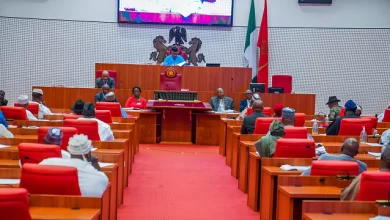New Push For State-Led Power Solutions Amid National Grid Instability
Amid recurring national grid failures that have plunged Nigeria into darkness for days, various states are pushing forward initiatives to establish independent power plants. With the national power grid collapsing ten times in 2024 alone and experiencing over a hundred failures between 2015 and 2024, states are now taking charge of their own energy needs. A June 2023 amendment to the 1999 Constitution, spearheaded by President Bola Tinubu, has shifted power generation to a concurrent list, allowing states to generate, transmit, and distribute electricity independently. This constitutional change has spurred at least 12 states to actively pursue self-sustained energy solutions to ensure reliable and affordable power for their residents.
Lagos State, a pioneer in independent power generation, has made substantial headway. The state is setting up four gas-fired power plants, each with a minimum capacity of 100MW, and has invited independent power producers to help meet its electricity demands. Additionally, the Lagos State House of Assembly is reviewing the Lagos State Electricity Bill 2024, which seeks to create a locally controlled electricity market. If passed, this law would enable Lagos to manage its power generation and distribution independently, aiming to bridge its significant electricity gap, as current supply from the national grid only meets a fraction of the state’s 6GW demand.
Ekiti State has also taken concrete steps towards energy independence by licensing 14 companies for electricity generation, distribution, and metering. With a daily supply from the national grid of only 20-25MW, Ekiti is working to achieve 130MW through state-led initiatives. Governor Biodun Oyebanji stated that the move aligns with the 2023 Electricity Law Enactments, designed to empower states to meet local energy needs more effectively.
In Osun State, plans for energy independence are underway, with the state exploring the potential of a mini-hydro project at Ikeji-Ile. Governor Ademola Adeleke is set to present a bill to the House of Assembly to regulate electricity generation and distribution within the state.
Ogun State is also moving towards autonomous power generation. Governor Dapo Abiodun has established a new Ministry of Energy to oversee the state’s independent power ambitions, with plans to leverage the Oyan Dam for electricity generation. Similarly, Rivers State has four gas turbines capable of producing over 450MW. The state’s commissioner for power, Solomon Eke, noted that while these turbines were initially constrained by federal distribution regulations, ongoing upgrades and investor interest signal a shift towards state-managed power supply.
In Benue State, a power plant is planned to enhance economic growth by supplying energy to communities across the state. The Managing Director of the Benue Investment and Property Company, Dr. Raymond Asemakaha, emphasized the importance of this initiative in bolstering the state’s socio-economic infrastructure.
These proactive moves by states indicate a gradual but significant shift in Nigeria’s energy sector. With states taking charge of their power needs, there is potential for more reliable electricity supply, increased local investment, and a stronger economic foundation driven by state-managed energy solutions.



